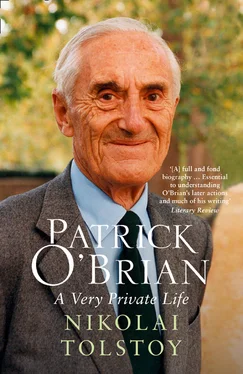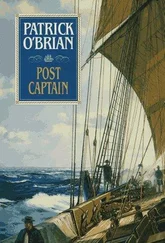Next month they set off on a much more ambitious expedition, camping for nearly seven weeks in and around Andorra. As ever, they found the little Pyrenean principality entirely beautiful, and largely untouched by the modern world. After a week they were joined by Odette and Rubill. The latter was promptly attacked by four fierce dogs, from which she was barely saved by the two courageous women. So far from displaying gratitude, Rubill constantly eyed their provisions, only to be as regularly forestalled by the vigilant Buddug. Prices in Andorra were much lower than in France, farmers hospitable to the campers, and the weather benign. Their diet was supplemented by wild strawberries and trout from mountain streams. Buildings were picturesquely medieval, and transport off the few main roads was conducted by cows drawing haycarts, while on steep slopes mules dragged loads of hay on angled wooden platforms.
Fortunately the dauntless campers were hardy, and carried on their backs tents, sleeping bags, cooking utensils, and even a heavy wind-up gramophone and collection of records. Odette remembered their dancing under the moonlight to Bach and Beethoven. It was on this or another of their expeditions that she recalled their getting lost one day in a heavy mist. After hours of more and more anxious wandering, they stumbled at last on their camp, having unwittingly strayed in a wide circle. Despite their hardihood, femininity persisted. Venturing beyond the camp to relieve themselves one day, the two young women were startled by a large snake, and fled shrieking back to safety.
In the meantime my parents’ concern was aroused by distressing news from Richard. As described earlier, Patrick was delighted when his son expressed ambition to join the Royal Navy. Nothing had been heard from him for some time, when on 23 May 1952 Patrick received what he described as ‘a sickening letter from Richard’. The news was indeed bad. He had failed the examination to Dartmouth, and the longed-for career was denied him. ‘I am very disappointed as I had worked hard and got nothing for it,’ he explained sadly. He possessed considerable natural aptitude for mathematics, and was skilled with his hands, but as he freely confessed was all but hopeless at exams. Regrettably, Patrick’s response has not survived. Given his own comparably abysmal experience, together with his understanding attitude towards similar disappointments on other occasions, I feel confident his reaction would have been supportive. Moreover, he knew that Richard was additionally occupied on Saturdays by such work as he could find to supplement his mother’s meagre income.
In July, as was mentioned earlier, Richard returned with my mother from London to Collioure, where he spent the summer holiday from July to September. (As the court judgment had ruled that Richard was to spend half of each summer holiday with his father, his mother clearly approved the extended arrangement.) This time he brought with him a good school report, and showed keen interest in joining the Merchant Navy. My parents had made extensive preparations, requiring further dangerous inroads into their ever-strained finances, to ensure that he had the most enjoyable holiday they could provide.
Tents, lilos and other camping gear having been purchased, on 8 August the little party set off crammed into an excursion bus full of excited boy scouts. Arrived once more in the mountains of Andorra, they encamped in pine forests. Here the modern world impinged barely at all. The first person they met was a cowherd, with ‘his woolly dogs; his cows are all round, many with bells’.[fn8] Richard and Patrick went fishing in a nearby lake, and returned to one of my mother’s wonderful improvised meals: ‘Fries very successful; lunch today was chops, potatoes, garlic, onion & tomato stew. Dear Budd seems happy & eats heartily.’ She was on heat, but fortunately the herd’s dogs were all bitches, save one male incapacitated by age. After a swim in a nearby river, they returned to camp, where ‘golden eagles flew right over us, being mobbed by choughs or crows’.
Next day my mother went to obtain milk from the cowherd, who ‘was asleep under a rock with his arm round his pet lamb who had its head on his shoulder’. The excitement grew briefly too much for Richard, who was sick at supper. Next morning, however, he proved right as rain, and after lunch went on a further fishing expedition with his father. In their absence my mother picked bowls of bilberries and raspberries for lunch.
The herd proved to be guardian of the sheep of the commune of Encamp. Patrick asked whether a hut could be found for them to sleep in. While the cowherd enquired with the Consul of Encamp, Patrick set off to buy food and change money in the town of Andorra. Meanwhile, as my mother wrote in her diary that evening, ‘R. & I did nothing but laze, & we played piquet.’ The journey to Encamp was pursued along very rough forest tracks, and the next day Patrick succumbed to a bad attack combining fever and diarrhoea, which proved to be dysentery. For several days he remained in acute distress, the pain eventually alleviated by the local remedy of boiled rice, together with Entero-Viaform pills obtained from an Andorran chemist.
Richard, who continued in rude health, went off fishing again, and on his return was ‘very cheerful, keeps roaring from his tent’. Before long they were installed in primitive beehive huts used by the shepherds of Encamp. ‘R’s hut: how he worked at clearing & levelling the floor. P. crept over to look at it: it looks dangerous about its roof, is exposed & draughty but very, very beautiful.’
On 19 August my mother left Patrick, who remained sick in their camp, and obtained a lift to Andorra from a pleasant Frenchman. Arrived in the sleepy capital, she enquired about buying a home in the principality, as a refuge from the turmoil of town life in Collioure. By chance it was to the Consul of Encamp that she was directed for information, having been given a paper explaining the law on foreigners owning land in Andorra, together with a letter of introduction. After one and a quarter hours’ walk, my mother arrived in Encamp. At the Consul’s house, nine of his assembled relatives read the letter in turn: ‘some aloud’. This protracted introduction concluded, the Consul himself read the paper and letter, murmuring benignly: ‘ Benez, Madame ’ – but could not be pressed to name a price.
A visit afterwards with Patrick to inspect a suitable site involved a hair-raising drive by an accommodating local up a mountainside. My mother, normally immune to vertigo, confessed that she had ‘never been more frightened in my life as when we swerved fast round corners that cambred away into 10000 feet of abyss, on the outside of the road’. ‘ Vous n’avez pas peur, Madame? ’ enquired their driver solicitously. Frustratingly, it proved necessary to postpone the elusive question of the proposed purchase until after their return home, and they returned to camp ‘depressed, to fold & carry up tents’.
The great holiday adventure was drawing to a close: ‘Felt very sad to leave Andorra.’ After erratic journeyings by bus, they picked up the delightful touristic yellow train (it still runs) offering spectacular views of the Pyrenees, until they arrived at the picturesque fortified town of Villefranche de Conflent, in the narrow defile of the Têt. Finally, late on the evening of 23 August they arrived in Collioure, by which time even Buddug was exhausted.
Next day there was great excitement, when a massive backlog of correspondence awaiting their return at the post office was retrieved to be studied over breakfast. It included a parcel of complimentary copies of Testimonies from the USA, together with ‘Wonderful reviews from N.Y. Times & N.Y. Herald Tribune, Harper’s Bazaar wanting short stories’. Spencer Curtis Brown wrote to report that requests for foreign rights to the novel were pouring in – from Italy, Germany, Norway.
Читать дальше












